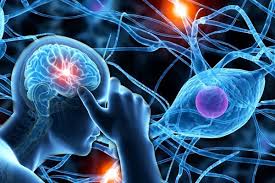Neurological Disorders
According to the University of California, San Francisco, there are more than 600 neurological disorders. Neurological disorders are diseases that affect the brain and the central and autonomic nervous systems. In recognizing the signs and symptoms of neurological problems, it is first important to distinguish the various types of neurological disorders.
What Are the Types of Neurological Disorders?
There are many types of neurological disorders, including:
- Alzheimer’s disease (AD)
- Epilepsy
- Multiple sclerosis
- Parkinson’s disease
- Migraines
The World Health Organization reports that various types of neurological disorders affect millions of people around the world, including 24 million that suffer from Alzheimer’s disease and 326 million who experience migraines.
What Causes a Neurological Disorder?
If you suspect that you or a loved one may be suffering from one of these issues, you may also be wondering about what causes a neurological disorder. The causes of such dysfunction can be quite diverse. Both the spinal cord and brain are insulated by numerous membranes that can be vulnerable to force and pressure. The peripheral nerves located deep under the skin can also be vulnerable to damage. Neurological disorders can affect an entire neurological pathway or a single neuron. Even a small disturbance to a neuron’s structural pathway can result in dysfunction. As a result, neurological disorders can result from a number of causes, including:
- Lifestyle-related causes
- Infections
- Genetics
- Nutrition-related causes
- Environmental influences
- Physical injuries
What Are the Signs of Neurological Disorders?
The signs of neurological disorders can vary significantly, depending upon the type of disorder as well as the specific area of the body that is affected. In some instances, you might experience emotional symptoms while in other cases physical symptoms may be the result.
Emotional Symptoms of Neurological Problems
While many people often first look for physical symptoms of a disorder, it is important to understand that there can also be emotional symptoms of neurological problems. For instance, you might experience mood swings or sudden outbursts. Individuals who suffer from neurological problems may also experience depression or delusions.
It should be understood that these symptoms could also be indicative of other disorders and conditions. If you have noticed these symptoms in yourself or someone close to you, it is important to seek help right away. Please contact us at to speak to someone about your situation.
Physical Symptoms of Neurological Problems
Physical symptoms of neurological problems may include the following:
- Partial or complete paralysis
- Muscle weakness
- Partial or complete loss of sensation
- Seizures
- Difficulty reading and writing
- Poor cognitive abilities
- Unexplained pain
- Decreased alertness
Short-Term and Long-Term Effects of Neurological Instability
If left untreated, neurological disorders can result in a number of serious consequences. The short-term and long-term effects of neurological instability can vary greatly, depending upon the disorder and the severity of your condition. For instance, according to MSWatch, 50 percent of individuals who suffer from multiple sclerosis experience depression at least once. The University of Miami Health System reports that the symptoms of Parkinson’s disease become more severe over time, as this is a progressive disease. The most important step you can take if you believe that you or someone you care about may be suffering from a neurological disorder is to seek assistance without delay.




